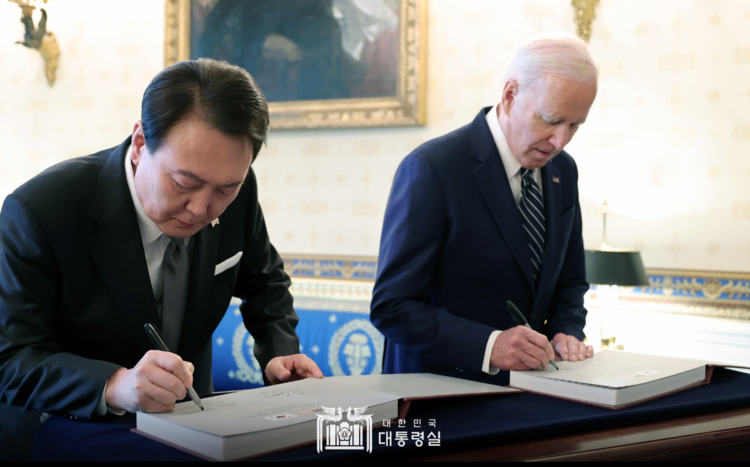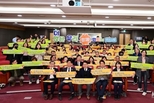
Newsnomics AJAY ANGELINA reporter |
South Korean President Yoon and the Us president Biden has jointly established the “Strategic Cyber Security Cooperation Framework” (cooperation document), another milestone to expand the ROK-US alliance to cyberspace, took advantage of the occasion of 70th anniversary of the ROK-US alliance during a summit held in
Washington on April 26, 2023.
President Yoon and President Biden has declared for the first time that “the two nations will expand the
traditional security alliance of land, sea and air defense to the field of cyber security, and it will serve as a
symbolic opportunity to secure a 'cyber umbrella' comparable to a 'nuclear umbrella' adaptive to the joint co
operative document.
“Strategic Cyber Security Cooperation Framework” is largely consisting of four parts: the introduction, the
scope of cooperation, the principles of cooperation, and the system of cooperation.
◈ Introduction:
It contains the declaration of the two leaders about making cyber security a national policy and strategic priority in response of cyber threats rapidly increasing day by day, while contributing to peace and prosperity in cyberspace at the commemoration of the 70th anniversary of the ROK-US alliance.
In particular, by recognizing the ROK-US alliance applies to cyberspace, the two nations decided to begin discussions on the application method and situation of the Mutual Defense Treaty (MDT).
◈ Scope of Cooperation:
ROK-US cooperation will be expanded to cyberspace and will build trust by promoting cooperation in cyber
security technologies, policies, and strategies, including cyber threat information sharing.
The two nations will develop and implement various types of countermeasures to block and deter the
activities of malicious actors in cyberspace, and cooperate to hold countries involved in destructive and illegal acts in cyberspace accountable.
It was emphasized that the current cooperation will be further strengthened, such as training, core infra-
structure protection research and development, human resource development, real-time sharing of cyber
threat information, and establishment of a public-private-academic cooperative network to secure cyber
resilience.
◈ Principles of Cooperation:
The third part of the framework says, the two countries will jointly respond to malicious cyber threats based
on mutual trust and cooperate actively, utilizing all available capabilities, continuously sharing information on malicious cyber threat activities, and major cyber incidents.
◈ System of Cooperation:
The two countries are important partners on cyber issues, and in terms of cyber security policy and tech-
nology cooperation, various channels at various levels, such as the National Security Office-NSC channel and
the Korea-US Cyber Cooperation Working Group, and the US cyber security infrastructure.
Both have systematized close cooperation through organizations related to cyber security, such as the
National Security Agency (CISA) and the National Intelligence Service of Korea.
The two leaders agreed to continuously deepen the information alliance, compared to the 5-Eyes in cyber
security, by strengthening the sharing of cyber threat information while sharing the same awareness of the
solidity of the long-standing strategic alliance between the two countries including politics, diplomacy, judicial, and technology.










